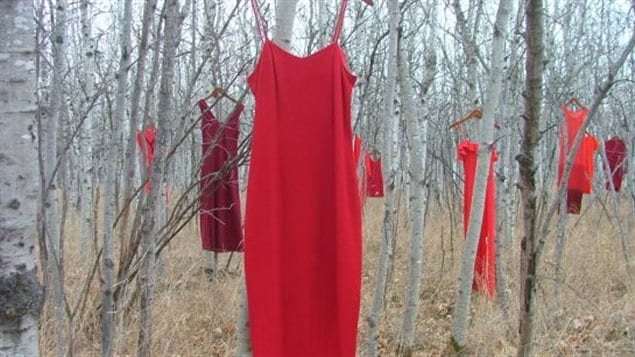The inquiry into Missing and Murdered Indigenous Women and Girls in Canada, will get underway on September 1st, 2016. The announcement on Wednesday, August 3rd, and the introduction of the five native and metis commissioners chairing the inquiry, was heralded as an “historic occasion” by many participants.
In an interview the following day, Dawn Lavell-Harvard, president of the Native Women’s Association of Canada, said she was honoured to have been there for the announcement..
With a budget of $54 million (Cdn), the inquiry, has until December 31st, 2018, to hear from the families of the women, and follow up on how they were treated, and how the tally grew to such a staggering number
“We can’t put a time frame on healing”
Dawn Lavell-Harvard speaks for the families when she raises the issue of the quest for justice, and the inability of the inquiry to bring charges, or re-open cases. Minister of Indigenous and Northern Affairs, Carolyn Bennett, who made the official announcement, clarified the scope of the inquiry, and made clear that avenues will be available.
In an interview the following day with CBC radio, she said of the inquiry, that “it can refer cases that are worrying to the police or oversight bodies, or to attorneys general, but they also can get to the bottom of individual cases because they now have the abililty to compell witnesses and compell documents.”
Lavell-Harvard also raised the issue of support for families, particularly when they return home following their testimony. She said, “telling those stories re-opens a lot of wounds”. And she said “we can’t put a time frame on healing.”
“If the system works for you sometimes it’s hard to understand that it doesn’t work for everybody.”
Lorelei Williams, a B.C. based activist said policing, and police accountability are paramount to her. She recounted the short story of her Aunt Belinda, who went missing in 1978 but was not technically “reported missing” until 2004 because the police dismissed the case.
Dawn Lavell-Harvard, like many in the aborginal communities, is happy with the choice of commissioners. She said, “they really have the personal experience and the professional credentials to make this commission the best it can be and actually get us the answers that the families need.”
As for the Canadian reaction as the inquiry takes place, Dawn Lavell-Harvard says, “there’s a lot of people that are going to be really quite shocked and appalled.” She says “we have to be ready for some very hard conversations… the level of racism and sexism that has been levelled against our people is terrible.”
Lavell-Harvard says it will be difficult for many Canadians to imagine these tragedies taking place. She says, “If the system works for you sometimes it’s hard to understand that it doesn’t work for everybody.”







For reasons beyond our control, and for an undetermined period of time, our comment section is now closed. However, our social networks remain open to your contributions.